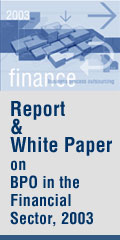|


|
Potential Forex Derivative Losses Unlikely to Affect Indian Banks' Ratings
05 June 2008: Fitch Ratings says mark-to-market (MTM) losses in 'structured' and 'exotic' foreign exchange (FX) derivative contracts of corporates are unlikely to affect the equity of Indian banks. The agency has been reviewing the potential counterparty credit exposure that the banking system may face due to MTM losses in derivatives transactions by corporates and estimates total MTM losses of corporates on FX derivatives to be currently in the range of USD3bn-USD3.5bn.
In a special report published today, Fitch says the more vulnerable SME segment accounts for about 25% of these losses, some of which could turn into actual losses for the banks on account of defaults or disputes with corporates. The concentration risk is higher among larger corporates, but the likelihood of default here is expected to be low.
MTM losses would vary from bank to bank, depending on the business size, nature of contracts and mix of business between SMEs and large corporates. Indian banks would be able to absorb even large-scale defaults from the SME segment as these represent only about a quarter of the total losses. "The key risk could arise from any default by larger corporates, given the big-ticket size per client. These corporates, however, possess superior financial flexibility as well as high inclination to protect their reputation and maintain healthy relationships with their bankers," says Ananda Bhoumik, Senior Director in Fitch's Financial Institutions team.
The report also highlights the need for banks and corporates to review their risk management systems. Banks, in particular, need to further refine their derivatives underwriting policies, including practices for assessing potential future exposures, while also adopting a more conservative approach towards capital allocation. Since product risk could differ widely depending on the structure, a risk-adjusted capital allocation policy may be more appropriate in future.
In a recent draft guideline, Reserve Bank of India has proposed revisions in the market risk factor for calculating regulatory capital requirement for banks' exposure to derivatives. In effect, the capital requirement for contracts with maturity less than three years would be increased, which would discourage the use of derivatives for speculative purposes. The guidelines also require capital allocation to be calculated only on a 'current exposure' basis, thereby increasing the capital charge for banks that may have preferred to use the 'original exposure' approach.
So far, Axis Bank and Kotak Bank have each announced provisions of less than USD20m against such exposures, primarily arising from defaults by SMEs. The majority of open contracts in the system are expected to mature over the next 12 to 18 months, when a clearer picture on the provisions that banks need to make would emerge.
(This is press release of Fitch Ratings)
credit outlook for the Indian banking system is stable
Global credit quality worsens in first quarter 2008
Current challenges in the global financial markets
Highest levels of political and economic uncertainty in 2008
No immediate threat to financial stability in India
CLICK FOR MORE FEATURES & STORIES


|
|



|








